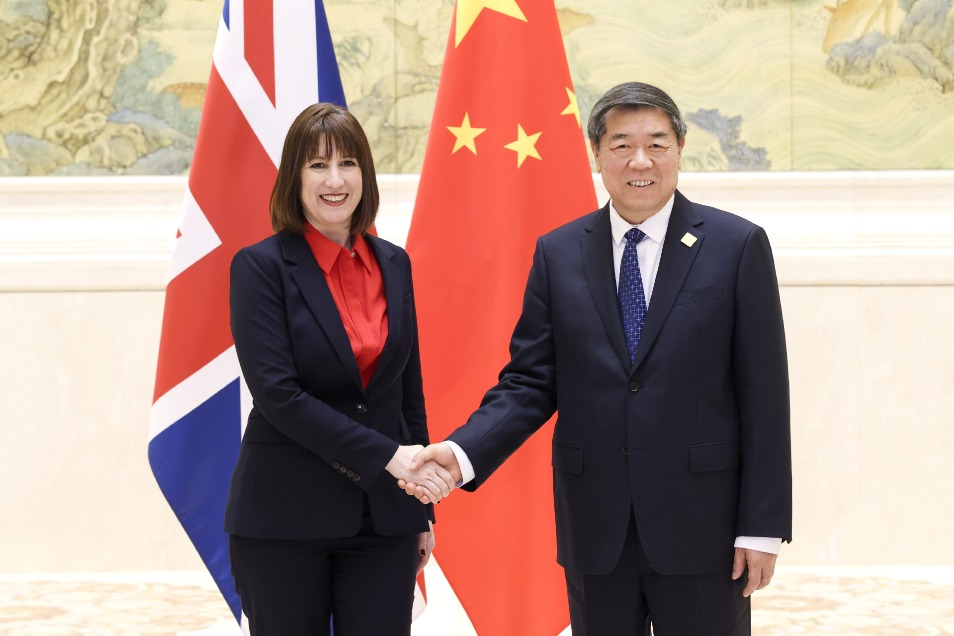Plenary session stresses reform, modernization
US experts: Efforts seen as crucial to driving China's productivity, long-term propsects


Reform and modernization were key takeaways from the communique issued at the third plenary session of the 20th Central Committee of the Communist Party of China, experts from a think tank in the United States said.
They also see reform and modernization as crucial to boosting productivity and long-term growth through technological innovation.
Guoguang Wu, a senior fellow on Chinese politics at the Asia Society Policy Institute's Center for China Analysis, said the Party is sending a "very strong signal to Chinese people and the international society that we will have reform".
Wu offered his observations on Friday at a webinar held by Asia Society, a think tank and nonprofit organization, titled "The Third Plenum: What is Xi Jinping's Plan for China?"
Lizzi Lee, a fellow on Chinese economy at the ASPI's Center for China Analysis, noted that the emphasis of the third plenary session was on "Chinese-style modernization", including emphasis on technology innovation and the "new quality productive forces".
The plenary session also highlighted challenges such as income inequality, trade tensions and fiscal issues and noted strategies to address those issues through supply chain policies, market roles and financial reforms.
Lee noted two other points: self-sufficiency and major breakthroughs, especially in frontier science, which is "no surprise given the rising geopolitical tensions, particularly with the US".
She said the plan also emphasizes a dual role of State guidance and intense competition among private sector companies and entrepreneurs.
In its original text, the communique said that "we must better leverage the role of the market, foster a fairer and more dynamic market environment, and make resource allocation as efficient and productive as possible. We will lift restrictions on the market while ensuring effective regulation, striving to better maintain order in the market and remedy market failures".
The government "will continue to provide guidance and support for industry supply chains, while the private sector drives growth and innovation". That strategy has already been successful in the electric vehicle and battery sectors, and China plans to extend it to key areas such as semiconductors, medical equipment and machine tools, Lee said.
China has a major economic goal to lift per capita GDP to that of a mid-level developed country by 2035, and to reach that target, China's economy would need to grow at about 4.5 to 5 percent annually, she said.
According to data released by the National Bureau of Statistics on July 15, China's economy grew by 4.7 percent in the second quarter of the year after 5.3 percent growth in the first quarter.
"It's clear to me from the third plenum document that the Chinese leadership has decided that to sustain this level of growth, China needs systemic upgrading along the global value chain, not just short-term stimuli," Lee said.
Bert Hofman, an honorary senior fellow on Chinese economy at the ASPI's Center for China Analysis, said the document is "about high-quality development, the high-standard socialist market economy as being the tool for this Chinese modernization".
Hofman saw a consistent policy on the supply side. He said that the policy is about significantly increasing investment in science and technology and integrating it with industrial policy. The goal is to use various tools to link current and future technologies with high-quality productive forces.
Hofman also said that one of the most important points of the third plenum is the reaffirmation of a key principle acknowledged by the third plenary session of the 18th Central Committee of the Communist Party of China in 2013: that the market plays a decisive role in allocating resources.
He said that he believes that the government-market balance is now even stronger than in 2013.Although this principle wasn't mentioned in the communique, it is reiterated in the resolution, emphasizing the need to leverage the market's role, he noted.
The plenum clearly recognizes the fiscal problems in China, particularly at the local level due to issues in the real estate sector, he said.
There are promises of tax and transfer reforms, centralizing expenditures and improving budget management. The resolution provides a clearer framework and direction for addressing those issues, he added.
































